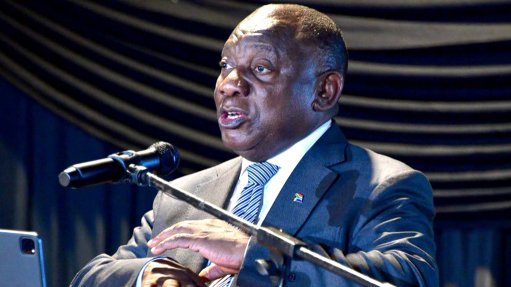
President Cyril Ramaphosa
President Cyril Ramaphosa said on Monday that if government works together with citizens in implementing the recommendations of the State Capture Commission, the country will succeed in building the society and the State that citizens wants.
Ramaphosa noted in his weekly letter to the nation that over the coming days and weeks, from hashtags to homes to the halls of Parliament, South Africans from all walks of life would be debating government’s response to the findings and recommendations of the State Capture Commission.
He said great progress in the fight against State capture had been made, owing to the efforts of the people of South Africa.
“This moment of renewal is upon us and urges us to restate the vision of our National Development Plan of ‘a South Africa that has zero tolerance for corruption, in which an empowered citizenry has the confidence and knowledge to hold public and private officials to account and in which leaders hold themselves to high ethical standards, and act with integrity’,” he said.
He noted that the path ahead would be challenging, “but if we work together in implementing the recommendations of the State Capture Commission, we will succeed in building the society and the state that we want”.
On Saturday, Ramaphosa submitted to Parliament government’s response to the findings and recommendations of the Commission of Inquiry into State Capture.
This submission was made nearly six years to the month after former Public Protector Advocate Thuli Madonsela released her ‘State of Capture’ report, in which she investigated complaints of alleged unethical conduct by several State functionaries and private individuals and companies.
The Public Protector’s report gave rise to the establishment of the judicial commission of inquiry chaired by the then Deputy Chief Justice Raymond Zondo.
In compliance with an order of the judiciary, the executive branch of the State has now submitted a response plan to the legislature, as further evidence of the good and growing health of the country’s democratic dispensation.
“During four years of public hearings, our nation was saddened, outraged and left in disbelief by testimony of how a criminal network in government, public institutions and private companies had raided state coffers and vandalised institutions of our democracy,” said Ramaphosa.
He explained that upon closer consideration, the process of uncovering crimes against the country’s democracy gave government more reason for hope than despair.
The reactions of the overwhelming majority of South Africans highlighted the nation’s disdain for corruption and government’s determination that corruption and unethical corporate or public management would not be allowed to define South Africans.
The country had drawn strength from the courage with which whistle-blowers came forward to tell their stories and bring perpetrators of State capture to justice, Ramaphosa said.
“This process also revealed that in spite of sustained assaults by the architects and practitioners of state capture on key national institutions, we could depend on our criminal justice system to catch up with those who thought themselves untouchable,” he added.
Ramaphosa highlighted that the recently established National Anti-Corruption Advisory Council would play an important part in mobilising all sectors of society towards the attainment of a country defined by integrity, honesty and accountability.
Document Attached